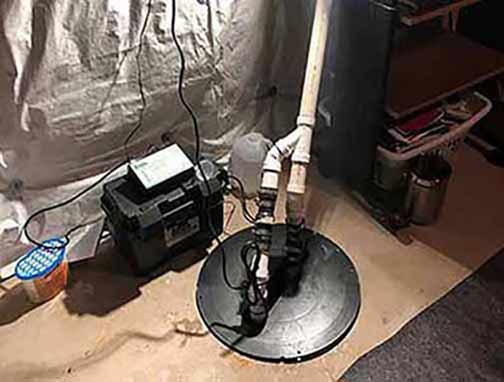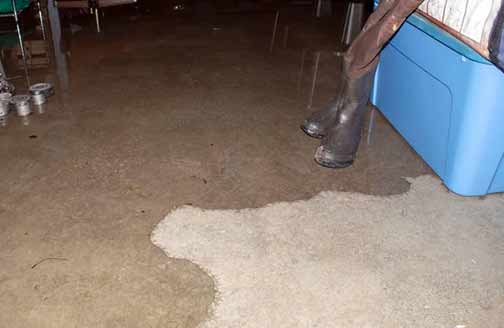Here we will explore the solutions for resolving the common issue of water backup in basement drains. This problem can cause significant inconvenience and potential damage to your home, so it’s essential to address it effectively. Whether you’re a homeowner, a renter, or a property manager, we’ve got you covered. Read on to discover the reasons behind this problem and the best solutions available.
The Causes of Water Backup in Basement Drains
Before we get into the solutions, it’s crucial to understand what causes water backup in basement drains in the first place. There are several factors that contribute to this problem, and being aware of them can help you prevent future occurrences.
- Heavy Rainfall or Flooding: During periods of heavy rainfall or flooding, the volume of water can overwhelm your basement drain system, leading to backups. This is especially true if your drainage system is not adequately designed or if it’s already dealing with clogs or blockages.
- Clogged or Blocked Drains: A common cause of water backup is a clogged or blocked drain. Over time, debris, hair, grease, and other substances can accumulate in the drainpipe, obstructing the water flow. This can lead to backups in your basement whenever water is used in your home.
- Faulty or Insufficient Drainage System: If your basement’s drainage system is not properly designed or installed, it may not have the capacity to handle the amount of water being directed to it. This can result in backups, especially during intense rainstorms or when multiple household appliances are in use simultaneously.
- Sewer Line Issues: In some cases, water backups in basement drains may be caused by problems in the main sewer line connected to your home. Issues such as tree root intrusion, pipe collapse, or a damaged sewer line can obstruct the flow of wastewater, causing backups in your basement.

Consider upgrading to a more powerful sump pump or adding a battery backup system to ensure continuous operation during power outages.
Solutions for Resolving Water Backup in Basement Drains
Now that we have a better understanding of the causes, let’s explore the solutions to resolve water backup in basement drains. Depending on the severity and underlying issues, you may need to employ one or multiple solutions.
- Regular Drain Maintenance: Prevention is key when it comes to avoiding water backups in basement drains. Implementing a regular drain maintenance routine can help keep your drains free from clogs and blockages. This includes periodically cleaning your drains using natural or chemical drain cleaners and removing any visible debris from drain covers.
- Install a Backwater Valve: A backwater valve is a mechanical device installed in your main sewer line to prevent water from flowing back into your basement. It automatically closes when it detects a reverse flow, effectively stopping water backups. Consult a professional plumber to determine the best type of backwater valve for your specific needs.
- Improve Exterior Drainage: Enhancing the exterior drainage around your home can significantly reduce the risk of water backups in basement drains. Consider installing downspout extensions to divert water away from your foundation, grading the soil away from your basement walls, and ensuring proper gutter maintenance to prevent water from pooling near your home.
- Upgrade Your Sump Pump System: If your basement is equipped with a sump pump, ensuring it’s functioning properly is crucial for preventing water backups. Consider upgrading to a more powerful sump pump or adding a battery backup system to ensure continuous operation during power outages.
- Seek Professional Help: If you’ve tried the above solutions and are still experiencing water backups in your basement drains, it’s advisable to seek professional help. A licensed plumber or drainage specialist can inspect your system, identify any underlying issues, and recommend tailored solutions to resolve the problem effectively.
Water backup in basement drains is a common issue that can cause significant inconvenience and potential damage. By understanding the causes and implementing the appropriate solutions, you can effectively resolve this problem and safeguard your home. Remember to prioritize regular drain maintenance, consider installing a backwater valve, improve exterior drainage, upgrade your sump pump system if necessary, and seek professional help when needed. By taking proactive measures, you can maintain a dry and functional basement for years to come.
